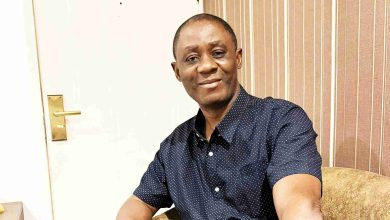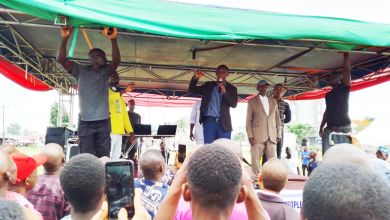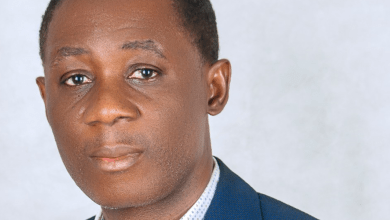The Ogoni Struggle and The Perceptual Deficiency in Nigeria’s Reading of MOSOP
Social transformation is powered by a leadership that is able to administer society’s resources, especially its natural endowments to build a better future for the people. When the minimum expectations are not met, trust becomes eroded and change is sought through democratic, and, or other means.
The situation in Ogoni aptly exemplifies the above scenario. Oil was discovered in Ogoni in 1958. Between 1958 and 1990, an estimated $100billion worth of oil had been carted away from the oilfields of Ogoni. Today, Ogoni’s oil production capacity is put at 1million barrels per day with yearly income generation capacity of $27.365.billion (Twenty Seven Billion, Three Hundred and Sixty Five Thousand Dollars).. That excludes revenues from its gas deposits which by far exceeds the oil potentials.
Shell had flared Ogoni gas for 24 hours daily for over 30 years with profound impact on the environment. Wildlife had been completely extinguished by heat from the gas flares. Flora and fauna had been lost and agricultural output now barely support family food requirements. Constant oil spills have destroyed the farmlands, sources of drinkable water polluted and the fishes are all dead as a result. The Ogoni ecology is lost along with an uncertain future for the people.
On the other hand, the Nigerian government showed no sympathy. The Petroleum Act of 1969 took away our natural endowments and the Land Use Decree of 1978 took away our lands. We lost everything to the discriminatory laws of a repressive Nigerian system.
Just at about the same time came the Nigerian civil war. Although we had no political nor economic stakes in the war, about 30,000 Ogonis died in captivity. An estimated 20,000 died from hunger, diseases, human cannibalism and sundry issues associated with the war. I grew up to learn that over 60 percent of young men who were 40 years and above, by 1995, were strenuously conscripted to fight on the side of Biafra.
Nigeria has not recognised our contributions and place in its political configuration. As an indigenous community, we still have no say over what affects us. We do not have a government of our own, we cannot set our priorities, while our resources power the entire country, we live in the most insecure environment and have lost everything to Shell.
These inhuman conditions became the catalyst for the formation of the Movement for the Survival of the Ogoni People (MOSOP) in 1990. MOSOP was our response to a strangulating poverty, a deprivation that was sending the nationality into extinction, a denial of basic rights to life and freedom including political and economic freedom. All of Ogoni embraced MOSOP including the old, the young, men, women and children because it offered some hope for survival.
On January 4, 1993, the Ogoni people registered an unprecedented match against Shell and the Nigerian state. Series of protests followed and had since become a tradition and key strategy of the Ogoni people to register discontent.
We non-violently chased Shell away using our massive mobilization and civil protests. In 1993, Shell announced its withdrawal from Ogoni. .Our leafs and songs silenced the bullets of Nigerian soldiers and deflated Nigeria’s protection for Shell. In response, Shell’s inhumanity became manifest in the way it turned the Nigerian military against our people. The Nigerian state declared war on its own people – killing, torturing, raping women and executing many.
Between 1993 and 1999, an estimated 4,000 Ogoni people were killed in state-backed repression funded by Shell Petroleum Development Company of Nigeria Limited. It was an unimaginable military operation against our people. And quite painfully and regrettably, it was ordered by our own government who backed the genocide and committed to protect Shell, a third party capitalist, rather than standing with its own people.
No one had been held accountable for the crimes against the Ogoni people. Shell continues to drill oil in Nigeria and fund the state with petro-dollars. Neither Shell nor Nigeria has ordered an investigation into the Ogoni crimes.
Our natural endowments became a curse, Our people died from military bullets shot sporadically into their hiding places. Some were killed in torture centers. Many were shot during day and night raids. The experiences were gruesome and we will never stop telling the story with necessary documentation for the unborn.
The hope of negotiations and a possible resolution turned gloomy on April 21, 1994, when four Ogoni chiefs were said to have been killed in very controversial circumstances at Giokoo, Gokana kingdom of Ogoni.
I have just recently received reports confirming the discovery of concealed evidence suggesting that the Nigerian state masterminded the killing of the “Ogoni four” as a ploy to incriminate Mr. Ken Saro-Wiwa. Eventually, Saro-Wiwa and nine others were executed on November 10, 1995.
Saro-Wiwa and eight others including Nordu Eawo, Baribor Bera, Saturday Doobee, Felix Nuate, John Kpuinen, Dr. Nubari Kiobel and Paul Levura were killed on the orders of General Sani Abacha on November 10, 1995. All for Shell.
In 2011, a United Nations Environment Programme report indited Shell and the Nigerian authorities over the conditions in Ogoni. Amongst others, the report noted water contamination in Ogoni was 800 times more than the levels acceptable by WHO standards. More interesting is the fact that despite Shell’s denial of any wrongdoing in Ogoni, the report did state that Shell did not comply with the minimum local Nigerian standards in dealing with the Ogoni environment.
The UNEP report was not only the first public and official report on the Ogoni environment, it scientifically derailed Shell’s denials of any wrongdoing and exposed a criminal enterprise that enslaved the Ogoni people for years.
Some five years later, the Nigerian government launched an environmental cleanup programme in Ogoni. The cleanup turned out to be one of Nigeria’s worst scandals. It lacked transparency and never adhered to standards. It completely deviated from the UNEP recommendations and while the report recommended its commencement with emergency measures, Nigeria attempted to climb the tree from the top when it commenced the process with award of contracts, without laboratories to test pollution levels, without training for workers and till this very minute, Ogoni is still without drinking water. The result had been a corruption riddled cleanup, with attendant looting of over $600 million injected in the project.
The Struggle Must Continue
I strongly urge the Ogoni people never to be deterred because this is a just cause, a just agitation. The Ogoni people are Nigerians and have a right to be treated fairly like all other Nigerian nationalities. The other nationalities all enjoy their rights to self determination in Nigeria. They live within defined territories called states and all have rights to set their priorities, define and pursue their development goals within their respective states.
For the Ogoni people, we generate the revenue that powers Nigeria and are abandoned to die from the consequences of natural resource exploitation. The Ogoni people exist only in Nigeria, are not protected, have no rights to self determination and continue to suffer state backed discrimination to date. This is genocide and the struggle will and should be sustained for as long as the injustices continue.
Final Words
The conditions in Ogoni is a problem and like every other probkem, there should be a solution. Fortunately, the Movement for the Survival of the Ogoni People (MOSOP) have recently achieved a breakthrough with approval for the establishment of an Ogoni Development Authority. This breakthrough was achieved on September 28, 2020 following its approval by the Central Committee of MOSOP.
Like MOSOP itself, the ODA is an idea and its implementation is in the operation of the idea
MOSOP remains confident and emphatic on the ODA as the remedy to this genocide of over 60 years.
Our struggle is essentially a response to the denial of basic and fundamental rights. A denial that has taken everything from a people who have contributed billions of dollars to the Nigerian economy, a denial that has destroyed their environment, left them without an economy, without a political future and threaten their existence.
While MOSOP was actually formed to become a vehicle to protest these denials, engage with the authorities, and find a solution, the hypocrisy of a Perceptual Deficiency in Nigeria’s Reading of MOSOP painted a false impression of it as an opposing movement. In protecting the crimes of Shell Petroleum Development Company of Nigeria Limited from been exposed to the world, the Nigerian government killed an estimated 4,000 Ogoni people.
The same hypocrisy has attempted to reduce our struggle for self determination into a $1 billion cleanup program. And quite unfortunately, the government wants to be commended for an act for which it should hide its face in shame.
But we must continue to work hard to achieve a resolution and pursue our development goals.
It is time to end this game and the philosophy of the ODA remains a practical and acceptable path. The ODA is a pragmatic step and the way to go. Let us take it.
Fegalo Nsuke is president of the Movement for the Survival of the Ogoni People (MOSOP). He wrote from Bori, Ogoni





